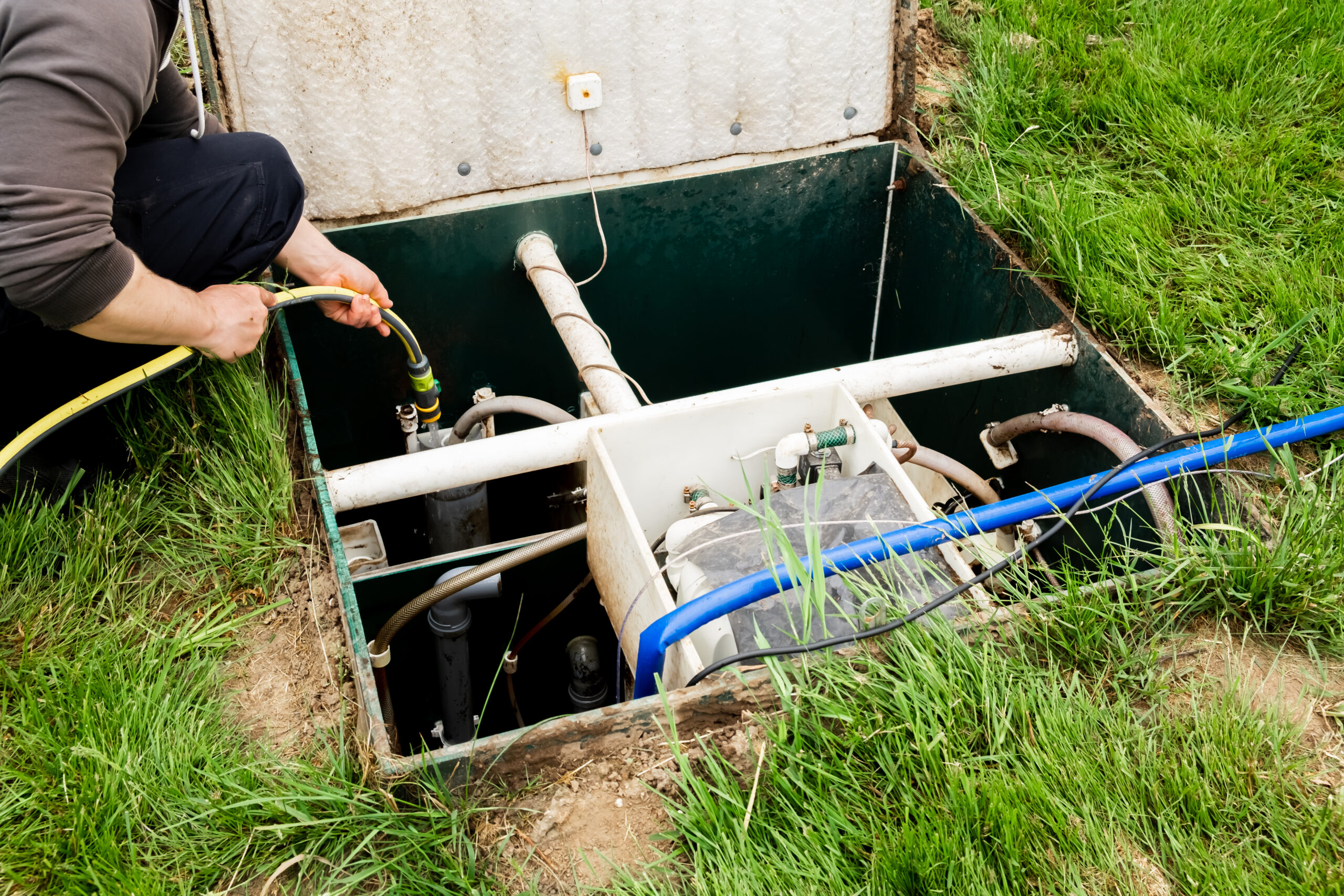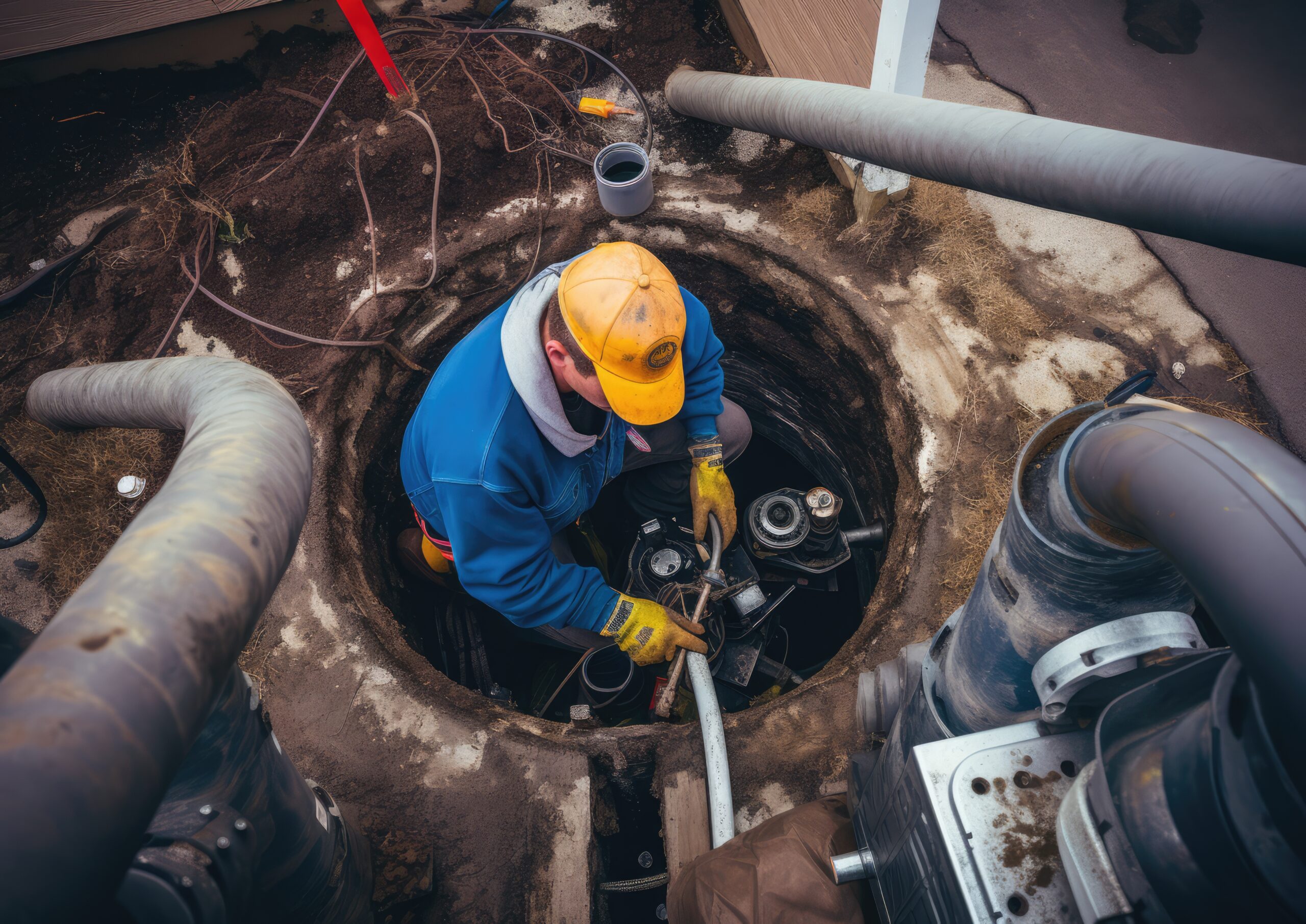Septic system maintenance is the key to keeping your wastewater system efficient, preventing costly repairs, and protecting your home and environment. A septic system is one of the most important yet often overlooked parts of a home. When it functions properly, it quietly manages wastewater, keeps your property safe, and protects the surrounding environment. However, if neglected, it can lead to costly repairs, unpleasant odors, and even health hazards. The good news is that with proper care and preventive measures, you can extend the lifespan of your septic system and enjoy peace of mind for decades. This guide provides expert tips that will help homeowners maintain efficiency, reduce risks, and ensure long-term reliability.
Understand How a Septic System Works
Before learning how to protect it, you need to understand the basics of a septic system. Wastewater from your home flows into a septic tank, where solids settle at the bottom and oils float to the top. The liquid effluent then travels to the drain field, where soil naturally filters it before clean water re-enters the environment. Knowing this simple process helps you make better decisions about what goes down your drains and how you care for your property.
Schedule Regular Pumping
One of the most important steps in extending your system’s lifespan is scheduling routine pumping. Over time, solids build up at the bottom of the septic tank and eventually reduce its capacity. If ignored, this buildup can cause blockages and even force untreated waste into the drain field. Experts recommend pumping your tank every three to five years, depending on the size of your household and usage. By keeping up with this essential task, you can prevent overflow and protect your system from serious damage.
Use Water Efficiently
Every drop of water you use in your home eventually ends up in the septic system. Excessive water consumption can overload the tank and drain field, reducing the system’s ability to filter waste effectively. To avoid this, consider installing water-efficient fixtures such as low-flow toilets and showerheads. Fix leaky faucets promptly, and spread out laundry loads instead of doing multiple cycles in one day. Using water wisely not only lowers utility bills but also reduces strain on your septic system, helping it last longer.
Watch What You Flush
Flushing the wrong items is one of the quickest ways to damage a septic system. Non-biodegradable products like wipes, diapers, sanitary items, and even paper towels do not break down easily and can clog pipes. Likewise, pouring grease, oil, or harsh chemicals down the drain disrupts the natural breakdown process inside the tank and can harm beneficial bacteria. Always dispose of these materials in the trash, not the toilet or sink. By making smart choices about what goes into your system, you significantly reduce the risk of clogs and backups.
Protect the Drain Field
The drain field is a critical part of your septic system because it filters wastewater into the soil. Protecting this area ensures your system continues to function effectively. Never park vehicles, place heavy equipment, or build structures on top of the drain field, as the weight can compact the soil and crush pipes. Be mindful of landscaping as well; avoid planting deep-rooted trees near the drain field since their roots can invade and damage pipes. Keeping this area clear allows wastewater to flow and filter properly, extending the system’s lifespan.
Conserve Household Energy and Habits
Small daily habits can make a big difference in how long your septic system lasts. Use garbage disposals sparingly because food waste adds extra solids to the tank. Consider composting organic materials instead, which benefits both your system and the environment. Space out water-heavy tasks such as dishwashing and showers to avoid overwhelming the tank with sudden surges of wastewater. Encourage all household members to follow these simple practices, and you’ll reduce unnecessary strain on your system.
Schedule Professional Inspections
Septic tank care ensures your system runs smoothly, prevents blockages, and extends the lifespan of your home’s wastewater treatment. Even if your septic system seems to be working fine, regular inspections are essential for long-term health. A proper septic tank pumping schedule prevents overflow and costly system failures. Professionals can spot early signs of problems like leaks, slow drainage, or structural damage before they turn into costly repairs. An inspection every two to three years is usually recommended, though older systems may need more frequent checks. Treat inspections as an investment in your property, ensuring that your system operates efficiently for years to come.
How often should you pump a septic tank?
Most septic tanks should be pumped every three to five years, depending on household size, tank capacity, and water usage. Regular pumping prevents sludge buildup, reduces the risk of backups, and keeps the system running efficiently. Larger families or homes with high water usage may need more frequent service, while smaller households may extend closer to five years. Scheduling inspections can help determine the best pumping interval for your specific system.
The Role of Septic System Maintenance
Ultimately, the key to extending the lifespan of your system lies in consistent care. Routine pumping, water efficiency, smart waste disposal, and drain field protection all contribute to its longevity. Professional inspections further ensure that minor issues are caught before they escalate. When homeowners make septic system maintenance a priority, they not only protect their property but also safeguard their health and the surrounding environment. Reliable maintenance is always less expensive and less stressful than emergency repairs.
Conclusion
Your septic system plays a vital role in managing wastewater safely and effectively. By following expert tips such as scheduling pumping, conserving water, protecting the drain field, and investing in inspections, you can extend its lifespan significantly. With the right approach to septic system maintenance, homeowners can avoid costly repairs, prevent environmental damage, and enjoy a reliable system for many years. Remember, taking care of your septic system today guarantees smoother performance and peace of mind tomorrow. Protect your property with expert septic system maintenance. Book a professional service before problems arise.




